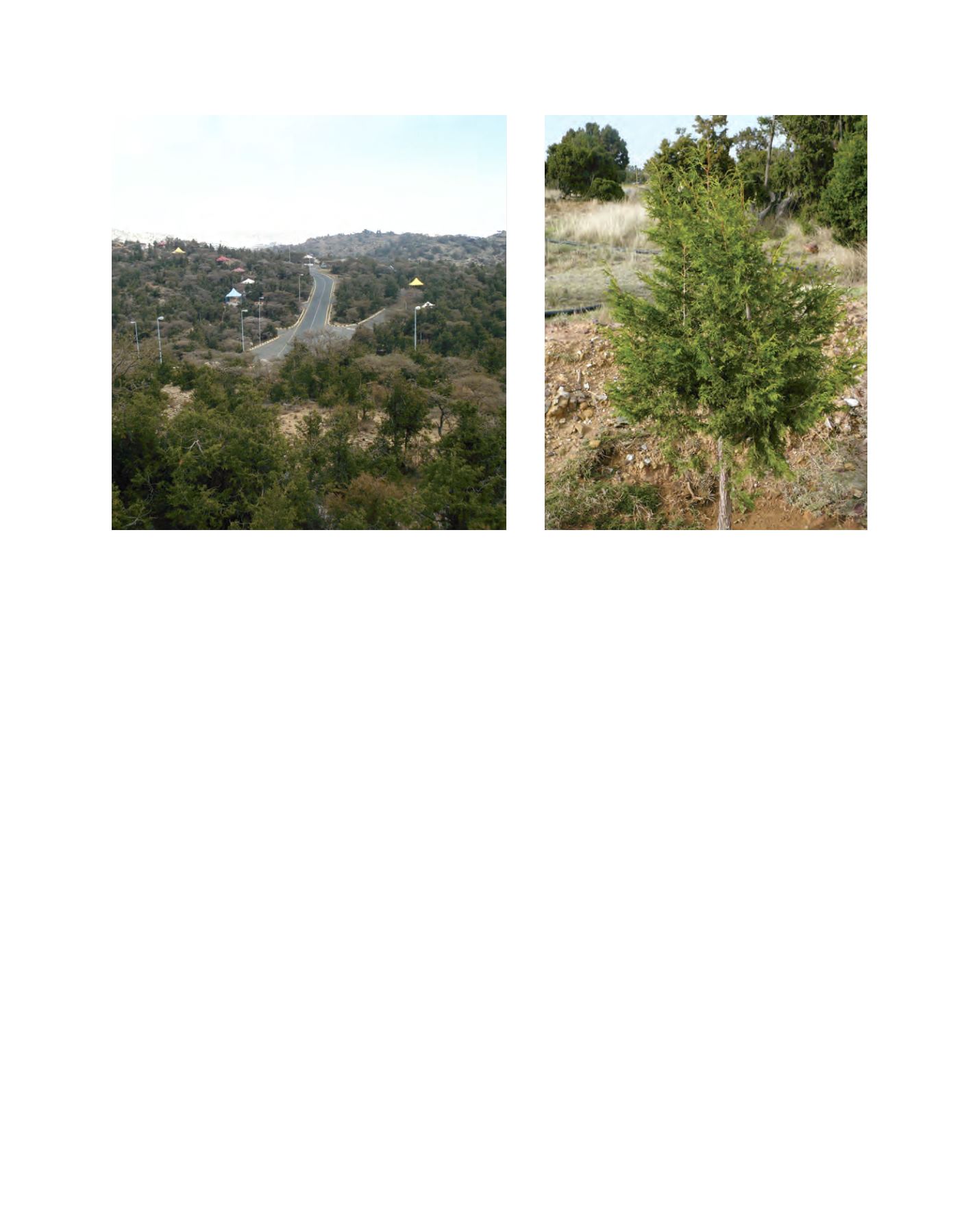

[
] 287
Plan (NFSAP) was also adopted for the period 2005-2022 to stream-
line the forestry efforts started in the country in the 1950s and to focus
on achieving the strategic objective of ‘maintaining and enhancing the
vigour of forest ecosystems and ensuring the sustainable provision of
environmental, social and economic benefits for all living organisms,
including for current and future human generations’.
The NFSAP, which has been implemented since 2006, includes
11 specific objectives and 15 projects covering all aspects of forest
inventory and monitoring, delineation, tenure securitization,
preparation of management plans, protection of sensitive sites and
endangered species, watershed management, afforestation/reforesta-
tion, national parks development, control of desertification and sand
advance, institutional development, strengthening of forest exten-
sion services, capacity-building, awareness raising and advocacy.
8
Juniper ecosystem rehabilitation
A success story that is worth mentioning here is the implementa-
tion of a project on Monitoring and Rehabilitation of the Juniper
Ecosystem in the Sarawat Mountains.
9
The overall objective of this
project, which was initiated in 2005, was to put the juniper ecosys-
tem and the services and benefits it renders into national focus,
highlighting the impact of the dieback and initiating a process of
rehabilitation and sustainable management. Many valuable recom-
mendations and techniques developed by the project are being
implemented successfully in various affected forest sites in the
Sarawat Mountains.
The main outcomes of this rehabilitation project are focused on
strengthening and mastering the techniques of afforestation/reforesta-
tion programmes by improving local capacity. Local tree species such
as juniper are used to compensate for problems such as narrow range
of diameter, reduced height and low stock density and to guarantee
sustainability. Another important outcome is the improvement of
available soil moisture for trees by rainwater harvesting
through construction of soil embankments and ditches
along contours, as well as by enhancing soil infiltration
and repairing and maintaining abandoned terraces.
Current focus issues
The key issues currently facing KSA in relation to forest
management and sustainable development as reflected
in the NFSAP are:
• Developing a participatory approach and further
involving local communities and the private sector
in natural vegetal cover management
• Capacity-building and institutional strengthening to
overcome the constraints recorded in this area
• Enhancing the coordination among all stakeholders
dealing with vegetal cover conservation, protection,
rehabilitation and management
• Reinforcing the application of the Forest and
Range Act and its by-laws to stop natural vegetal
cover degradation and to enhance forest and range
sustainable development.
A comprehensive forest inventory and the formula-
tion and implementation of sound management plans
for juniper stands are now among the top priorities of
the Ministry of Agriculture and the other Government
agencies dealing with forest management.
Efforts are also being made to curtail the detrimental
behaviour of visitors in the national parks by raising their
awareness through well-planned and well-executed exten-
sion programmes and developing more recreation areas to
release the high pressure on the existing national parks.
Recreation site in Namasse
Reforestation in Assir Park with local juniper
Image: Ministry of Agriculture, KSA
Image: Ministry of Agriculture, KSA
















